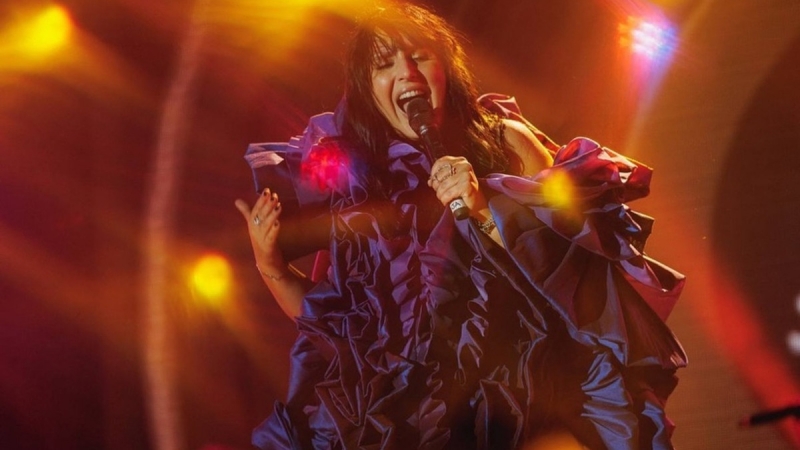
Jamala/instagram
Ukrainian singer of Crimean Tatar origin Jamala presented a new music video for the mystical ancient folk song “Arafat Dağindan” from the album Qirim, which was released last spring.
The song “Arafat Dağindan” is an ancient Crimean Tatar folk song on a religious theme, which in itself gives the composition a special meaning.
Special attention was drawn to the visual solutions, which fans compare with the paintings of Salvador Dali.
p>
The clip has multi-layered symbolism, where Jamala depicts the pilgrimage of the Crimean Tatar people, who is constantly searching for his place through numerous exiles. In the video, Jamala refers to personal memories, telling the story of her great-grandmother Nazilkhan.
The day when my great-grandmother Nazilkhan passed away, I remembered forever. She woke up and asked my mother: what day is it today? “Bugun Juma (today is Friday). Today I will die.” She asked her mother to prepare ifahash for her and ate the entire portion. Then she called a neighbor, they read a prayer, and she died…, Jamala said, introducing the song.
200% Deposit Bonus up to €3,000 180% First Deposit Bonus up to $20,000She added that she remembers well the day of her great-grandmother's death, even the dishes from which she ate that day.< /p>
Memories are all we have left. Memory of people, things, places that made us happy. Confession to yourself, story, prayer or mantra. I am very proud of this work. This video is like a precious thing that you wear on the best holidays or important events, the singer shared.
This is one of the longest videos in Ukrainian music – almost 7 minutes long. In it, the singer for the first time shared archival footage from Crimea, which emphasizes her personal connection with her homeland. Herman Nenov, creative director of Eurovision 2023, directed the clip.
Herman notes that this work needs to be watched at least three times, because it is quite complex in terms of its directorial and script design. The action takes place in two parallel realities: the first is the physical world, the great pilgrimage to Mount Arafat, which is reflected in the musical work. The second reality is the inner world of a person who, climbing a mountain, goes through the path of his own purification.

